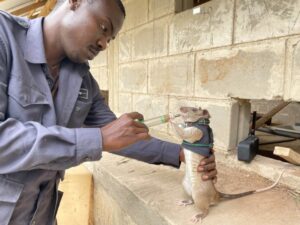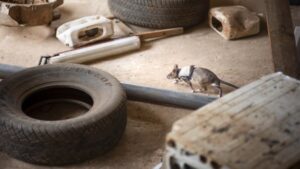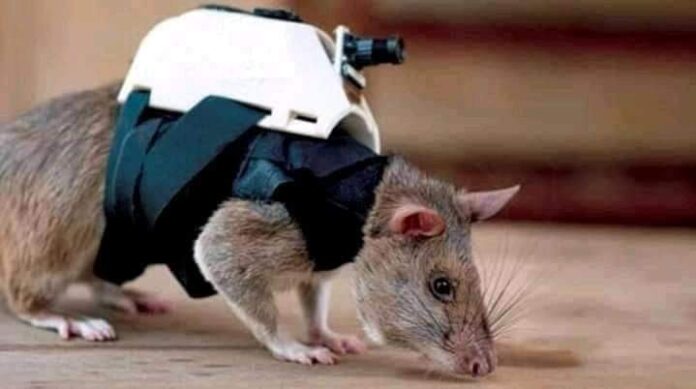How rats were trained to find earthquake survivors
After the devastating earthquake in Turkey and Syria on Monday—with more than 19,000 deaths as of the morning of February 9—rescuers have been racing to find survivors in the rubble of collapsed buildings. At some sites, search and rescue dogs are aiding the effort. But future disasters might also get help from an unlikely source – rats that are currently training to work in earthquakes’ aftermath.
“Rats are typically quite curious and like to explore — and that is key for search and rescue,” says Donna Kean, a behavioral research scientist and leader of the project.

In addition to their adventurous spirit, their small size and excellent sense of smell make rats perfect for locating things in tight spaces, says Kean.
The rats are currently being trained to find survivors in a simulated disaster zone. They must first locate the target person in an empty room, pull a switch on their vest that triggers a beeper, and then return to base, where they are rewarded with a treat.
READ ALSO: Police officers sacked for claiming rats ate 360kg seized Marijuana
“They can go deep into the rubble, and penetrate where dogs may not be able to go,” says Sander Verdiesen, an electrical engineer working with Apopo, the nonprofit training the rats. The organization has been working with rats for more than a decade to detect land mines in Africa, relying on the rats’ extraordinary sense of smell. Several years ago, GEA, a Turkish humanitarian organization, reached out to the group to propose training the rats to also work on search and rescue mission.

As they are trained for future disasters, the rats wear a backpack with a tiny camera, which can send a video feed to a rescuer’s phone outside. It also has a two-way microphone, making it possible for a rescue team to talk to a victim. “We can’t teach the rats to talk, so we need some way to communicate with any survivors in the rubble,” says Verdiesen, who started designing the backpack as a student at Eindhoven University of Technology in the Netherlands. The rats also wear a vest with a microswitch that they’re trained to pull when they locate someone.
Rescuers can send a signal that beeps back to the rats to tell them to return to the surface and receive a reward like peanuts or a mix of bananas and avocados.
The backpack tech was difficult to design since GPS often can’t work under a pile of debris. The team used multiple technologies with the understanding that the video stream won’t always be accessible.
“Transmitting video also takes a lot of bandwidth, so the video is a secondary source,” he says. “We know at some point it’s going to drop, and that’s basically how we’ve designed it.” The device also uses a lower-frequency signal that should be able to travel through the rubble to transmit the location of a victim. Verdiesen is working on making the equipment as small and lightweight as possible, though the rats were able to adapt even to a bulky first iteration of the design.
Some other projects are developing search and rescue robots, but they’re expensive and struggle to navigate under collapsed buildings. The rats—a large species called the Gambian pouched rat—evolved to explore underground, and can use their sense of smell to quickly find humans. If they lose a signal, they can find their way back to the surface on their own; a robot might just get stuck.
A group of rats are in training at Apopo’s facility in Tanzania, where they spend 15 minutes each day moving through a site designed to look like a collapsed structure. (The training sessions are short to make sure the rats stay healthy and happy.) They’ve successfully learned to find “victims,” trigger a switch to share the location, and navigate out of rubble on command. Over time, the site is becoming more complex, with more obstacles and loud noises. The team had planned to eventually go to Turkey to continue training with GEA, though it isn’t yet ready to work on the current disaster.
“We don’t want to go in there unprepared and potentially cause even more issues,” says Verdiesen. “But hopefully we’ll be there for the next one.”
Follow the Neptune Prime channel on WhatsApp: https://whatsapp.com/channel/0029Va74ZvU2v1IqKByXoX3d
Do you have breaking news, interview request, opinion, suggestion, or want your event covered? Email us at neptuneprime2233@gmail.com


